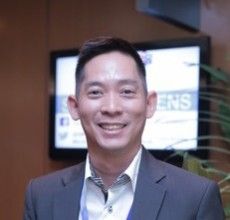How Malaysia uses feedback to rank agencies
By Nurfilzah Rohaidi
Interview with Jeremy Lee, who heads the partner company for Qlue in Malaysia.

Image: Christopher Crouzet – CC BY 2.0
Qlue, a citizen engagement app, could be that conduit between the citizens and their governments. This app allows them to “voice out [their feedback] in one single channel that will then disperse to respective government agencies,” said Jeremy Lee, CEO of Social Ant Sdn Bhd, which is the enterprise partner for Qlue in Malaysia.
Qlue was founded by Rama Raditya in Indonesia, where he worked with the Smart City Unit in the Jakarta city government to develop a dashboard to process citizens’ feedback and complaints. The system also uses data collected from the app to predict floods, traffic congestion and dengue.
Now, many major Indonesian cities are using it to collect feedback and data on government services. In Malaysia, the tech-oriented city of Cyberjaya will be the first to deploy Qlue in the coming months, according to Lee.
Importantly, the app can do more than just collect citizens’ complaints - it can also help agencies and municipal councils to monitor their employees’ performance and KPIs. “It will allow them to not just monitor, but to instantly reward a particular employee or government official that is undervalued in certain departments,” Lee explains.
Yelp for municipal councils

Social Ant is also in talks with Malaysian states such as Sabah, Sarawak, Johor Bahru and Selangor to adopt the use of Qlue in their governments. This may require some restructuring of operations, Lee accedes, but “we figure that we’ve got everything tried and tested in Jakarta for almost three years already,” he says.
Various municipal councils are currently running trials to identify any inefficiencies in their departments, using data from the app. “By having an app like that, we can now study where they are weak and strong,” Lee says.
The principle of gamification applies here. Officials earn points if they can attend to citizen’s reports within a specific timeframe, say, 24 hours. “The longer they take, the points are reduced,” Lee says, adding that this system allows management to rank individuals and better understand their level of productivity.
With the points system, whole neighbourhoods can be ranked too. “We can rank zones and rate them in terms of cleanliness and issues,” he explains. “Seeing how fast they can take action - this becomes part of the overall KPI of government.”
Armed with these insights, the councils may do a “proper reshuffle” of teams across departments to improve their overall performance, Lee believes.
Qlue also features location-based services, which allow departments to track which staff are responding to issues, Lee explains. And in case of emergencies, “if the hospitals are using the app, they will be able to dispatch and also track where the nearest ambulance is,” he continues.
Linking citizens and governments
Eventually, the ordinary citizen will have a say on how things are run, and the powers that be will have a finger on the pulse of how a community feels about certain issues. “In this manner, [citizens] are additional eyes and ears of government agencies - they can feedback to the agencies in order to improve the living conditions of their city or state,” Lee says.
As a citizen communications tool, Qlue has the potential to bridge the gap between youths and the Malaysian government. In the lead-up to 2050, Malaysia has unveiled its Tranformasi Nasional 2050 or TN50 plans, where the government hopes to reach out to young voters and create dialogues over how they wish to shape Malaysia’s future.
However, as the government is primarily reaching out through roadshows and conferences, their access is “limited”, Lee notes. Instead, they could use Qlue for vote casting, he suggests.
All relationships - in life, work and everything else in between - are based on healthy two-way communication. Similarly, for the government to improve lives, there must be a two-way channel between citizen and agency; only then can there be change.